
36 minute read
Supporting Research
from University Center for Human Values Annual Review 2019-20
by University Center for Human Values at Princeton University
The UCHV seeks to advance original scholarship relating to human values by sponsoring visiting faculty fellowships, a visiting professorship for distinguished teaching, postdoctoral research appointments, and dissertation-stage fellowships for outstanding Princeton graduate students. The research reports presented in this section illustrate the reach and quality of the work carried out under the Center’s auspices. A main feature of the visiting fellows program is a regular lunch seminar at which the Center’s visitors, together with its faculty members, present their work to an audience of peers. The graduate fellows meet regularly for their own research seminar, typically followed by a working dinner. As the research reports attest, the systematic criticism and discussion of work in progress is among the principal benefits of affiliation with the Center.
Laurance S. Rockefeller Visiting Professor for Distinguished Teaching
This professorship is part of the 250th Anniversary Visiting Professorships for Distinguished Teaching (VPDT) program. Each faculty visitor teaches an undergraduate course and engages in other activities aimed at improving teaching at Princeton.
Stephen Stich
My visiting professorship was only for the spring term, and needless to say, it turned out to be a very unusual term indeed. Things started well enough. During my second week, I ran a symposium to explore the ways in which the burgeoning literature in empirical moral psychology could be integrated into the philosophical curriculum. Earlier, in the fall term, when Melissa Lane asked me to organize the symposium, I began with an obvious Stephen Stich
strategy. I assembled a “dream team” list of speakers that included the best people in the world to address this issue, and I sent each one an invitation. What I didn’t know at the time was that no one says no to the UCHV. Everyone said yes. The symposium speakers included an all-star team of UCHV alumni. So it is hardly surprising that it was a great success. My class also started off well. It was on experimental philosophy, construed broadly, emphasizing work in experimental moral philosophy. The students were astounding—dazzlingly bright, articulate, engaged, and accomplished. Some of the projects they proposed were jaw-droppingly innovative. I had planned to have office hours for two or three hours a week. That quickly went to six and then to eight. Their enthusiasm was boundless. And then the pandemic descended, the students were sent home, and I had to learn how to teach on Zoom. But it turned out that Zoom classes make some things easier. Our last topic was altruism, and I persuaded Daniel Batson, yet another UCHV alum, and a towering figure in the field, to Zoom in as we discussed his work. The students were thrilled, and, as always, full of insightful questions. My research time during the term was largely devoted to the multimillion-dollar Geography of Philosophy Project—the largest cross-cultural experimental philosophy study ever undertaken.
Laurance S. Rockefeller Visiting Faculty Fellows
These fellowships are awarded annually to outstanding scholars and teachers interested in devoting a year in residence at Princeton writing about ethics and human values, discussing their work in a fellows’ seminar and participating in seminar activities.
Greg Bognar
Looking back, I’m astonished how productive my year at the UCHV has been, despite attending countless talks and seminars and the upheaval caused by COVID-19. I revised my paper on intergenerational cooperation and justice between age groups in light of the comments received at the LSR lunchtime seminar, co-wrote a paper from scratch on ex ante contractualism, completed three chapters of my book on moral relativism, started working with Iwao Hirose on the second edition of our book on “The Ethics of Health Care Rationing,” and put together a book proposal, with Axel Gosseries, for an edited volume on aging and public policy, which got accepted by Oxford University Press. Highlights of my year include attending the Ira W. DeCamp Bioethics Seminars, seeing the postdocs in action at their practice talks, learning about the philosophy of Zhuangzi from my fellow LSR Fellow Justin Tiwald, debating authoritarianism with Samuel Issacharoff and Kim Lane Scheppele at a LAPA seminar, listening to Steve Stich’s lectures on experimental philosophy on Zoom, and getting lost in the remote corners of the Firestone Library.
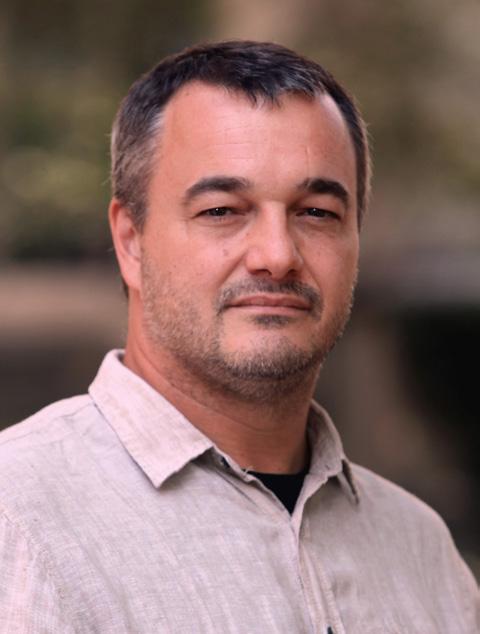
Richard Bradley
This was a year of two halves. The first semester was a whirlwind of seminars, workshops, reading groups and talks, with lots of opportunities to learn from people at the UCHV and at Princeton more widely. The second was largely spent locked down, conducting both my own research and collaborative research projects using Zoom. The intended focus of my research for the period of the fellowship was policy decision-making under uncertainty. I participated in the activities of the Climate Futures Initiative, including giving a paper on catastrophe insurance and how to price it in conditions of scientific uncertainty, and joining a reading group on scientific assessment. Parallel research on social ethics under risk and ambiguity benefited from the wealth of ethics-related seminars based in the UCHV and in Princeton’s philosophy department. The results of this work formed the basis for my presentation to the LSR seminar in March. All this activity was unfortunately interrupted by the pandemic, and I shifted attention to working with Marc Fleurbaey on how to manage the trade-offs between saving lives and saving livelihoods. We produced a simple model and simulator of the pandemic that allows for exploration of the costs and benefits of different health policies measured in a variety of ways, ranging from simple monetary measures of lives saved to estimates of equality-sensitive social welfare. The model has fed into a policy brief for the T20 and a number of blog posts.
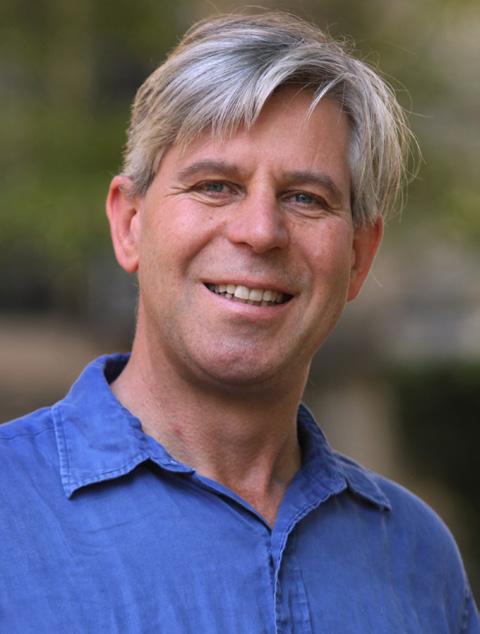
Ben Bramble
I greatly enjoyed and benefited from my year as an LSR Fellow at Princeton. I got a lot of work done on a book I’ve been writing on the ethics of artificial intelligence. I also made progress on a bunch of papers I’ve been writing in population ethics, including a paper on the non-identity problem (which I gave as my LSR seminar paper). I also addressed the Human Values Forum, on the topic of the badness of human
Ben Bramble
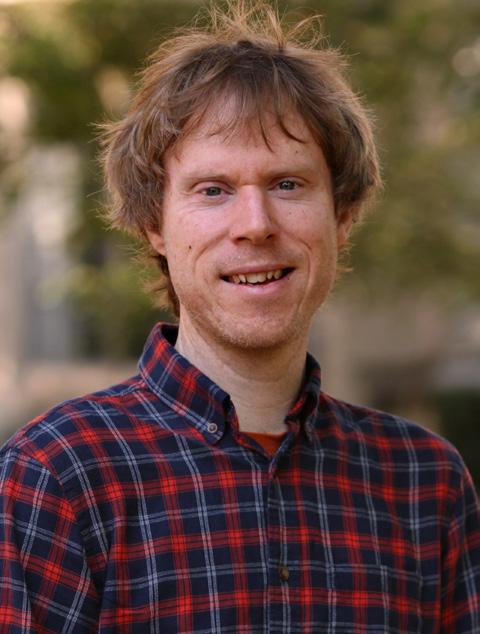
extinction, which I found very stimulating. The highlight of the year was definitely getting to regularly see and chat with some of the finest philosophers in the world, some of whose work inspired me to go into philosophy in the first place. I enjoyed meeting the other fellows and postdocs. They are a nice group of people. It was also a thrill just living in Princeton, a university town I’d always fantasized about visiting. The year was only slightly marred by the collapse of U.S. society as a result of the worst pandemic in a century. But now I’m writing a book about that as well.
Randolph Clarke
My research focused primarily on aspects of moral responsibility. I wrote three new papers, one on what blame is and what worthiness of it comes to, a second on whether worthiness of blame can be diminished by atonement, and a third on whether alethic views of fitting blame can accommodate a proportionality requirement on blame. To the LSR seminar I presented a co-authored paper on desert of feeling guilty; feedback from participants was invaluable for subsequent revision. I completed revision of two additional papers, one on the agency of omission; the other, presented to the Princeton Workshop in Normative Philosophy, examined the apparent fact that commonly when one acts, it is up to oneself whether one does this or that. The LSR seminars, with their lively discussions of work by fellows and affiliated faculty, were high points of my time at the Center. I enjoyed also numerous lectures, colloquia, and workshops, as well as meetings of two outstanding graduate seminars, one taught by Liz Harman and the other by Sarah McGrath. Informal discussions with other Faculty Fellows, postdocs, and Princeton faculty were both delightful and stimulating. I am grateful to Melissa Lane and all the staff for their superb work running the Center.
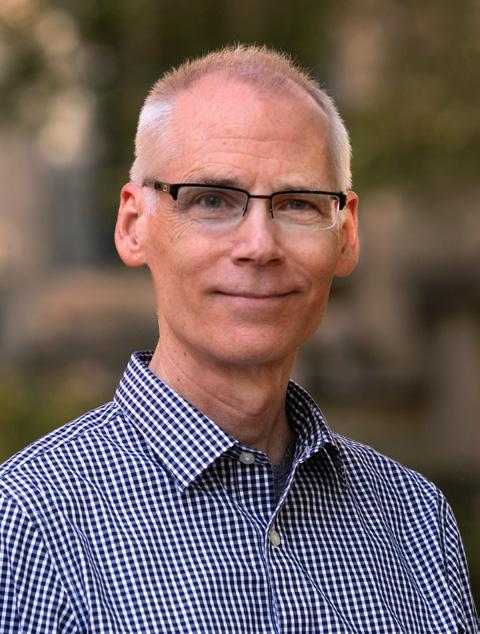
Dorota Mokrosinska
It was a great privilege to be part of the Princeton community this past year. My research goal was to get underway with a monograph and an edited volume, both related Dorota Mokrosinska
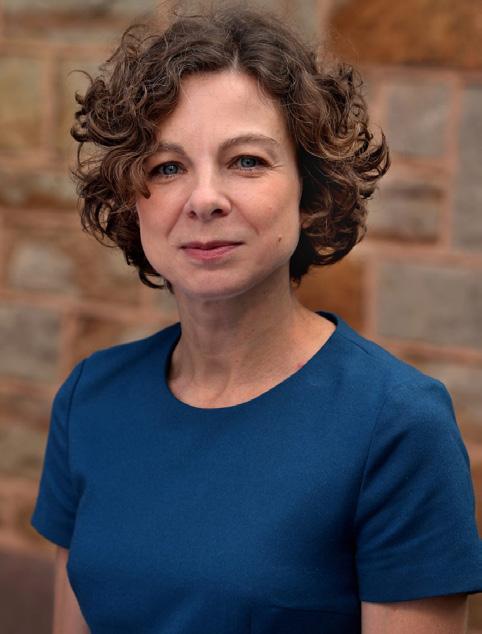
to my larger project exploring the justification of secrecy in democratic governance. During my fellowship, I secured a contract with Routledge for my monograph “Secrecy and Democracy: A Philosophical Analysis.” I made good progress on refining my argument and wrote a new (co-authored) paper on secrecy in legislative decision-making, developing an argument that will feed into the monograph. I also completed the editorial work on an interdisciplinary volume “Transparency and Secrecy in European Democracies: Contested Trade-offs”; this is scheduled for publication by Routledge this year. Over the course of the year, I revised and completed two self-standing papers. One is an invited contribution for the volume “Foreign Policy Secrets in the Age of Transparency,” edited by Abazi and Rozen (Oxford University Press). The other is a co-authored paper discussing the right of the media to publish classified information. I am grateful to my co-fellows for their feedback, intellectual stimulation, and companionship. I learned a
lot from the LSR seminar and the incredibly rich offering of talks, workshops, and events. I also enjoyed interacting with Princeton undergraduates when presenting a paper “Why Snowden and Not Greenwald: On the Accountability of the Press for Unauthorized Disclosures of Classified Information.” COVID-19 disrupted the last two months of this wonderful year, but the Princeton fellowship filled me with inspiration for the time to come.
Avia Pasternak
My research project for the year was on the moral permissibility of violent protests. I wrote a new paper titled “‘It’s the Only Way to Make Us Heard’: Violent Protest and Testimonial Injustice.” I presented it at the LSR seminar and also at the NYU philosophy seminar. I also prepared a book manuscript proposal titled “No Justice No Peace: In Defence of Violent Protests” and presented a chapter of this book at the Human Values Forum. I worked on a related paper, with Jeff Howard (University College London), titled “Restorative Justice and the Moral Standing of Unjust States.” Finally, I finished up a book manuscript titled “Responsible Citizens, Irresponsible States: Should Citizens Pay for the State’s Wrongdoings?” (under contract with Oxford University Press). I presented a chapter of this book at the Princeton Workshop in Normative Philosophy. Other than research and writing, I attended the LSR seminar, the Political Philosophy Colloquium, the Ira W. DeCamp Bioethics Seminars, a reading group on Jon Quong’s “The Morality of Defensive Force,” as well as many other seminars and talks. Last, but not least, I enjoyed countless invaluable philosophical conversations with the UCHV faculty, fellow visiting scholars, and postdocs. This has been a wonderful year, and the intellectual stimulation it provided will furnish my research for years to come. I am especially grateful to Melissa Lane for her leadership in what turned out to be an unusual year, and to the administrative staff at the UCHV, for making it such a welcoming place.
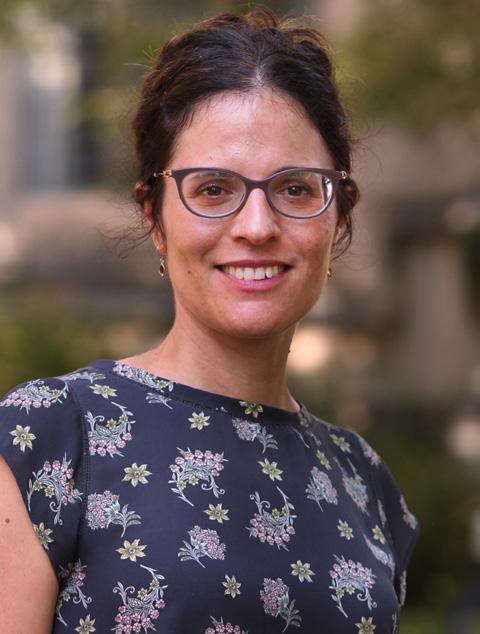
Sahar Sadjadi
During the 2019-20 LSR fellowship, I researched the ethical implications of current biomedical interventions to alter growth and puberty of children and adolescents through the pharmaceutical modification of reproductive hormones. In conversation with other LSR fellows and UCHV faculty, and at seminars such as the Ira W. Sahar Sadjadi

DeCamp Bioethics Seminars, I expanded my analysis to adopt a normative framework in evaluating the potentials and limits of biomedicine when implicated in enhancing life chances of marginalized children. During this year, I engaged with colleagues at the Department of Anthropology, the Program in Gender and Sexuality Studies, and other visiting scholars at Princeton who work at the intersection of social studies of science and gender and sexuality. Besides the paper I wrote for the LSR seminar that will be submitted to Social Science and Medicine, I completed an article titled “The Vulnerable Child Protection Act and Transgender Children’s Heath,” that will be published in the journal of Transgender Studies Quarterly in August 2020.
Justin Tiwald
I thank the faculty and staff of the UCHV for facilitating a highly productive year of research, publication, and public talks and discussions. I published four article-length pieces this year, all of which were informed by feedback
Justin Tiwald
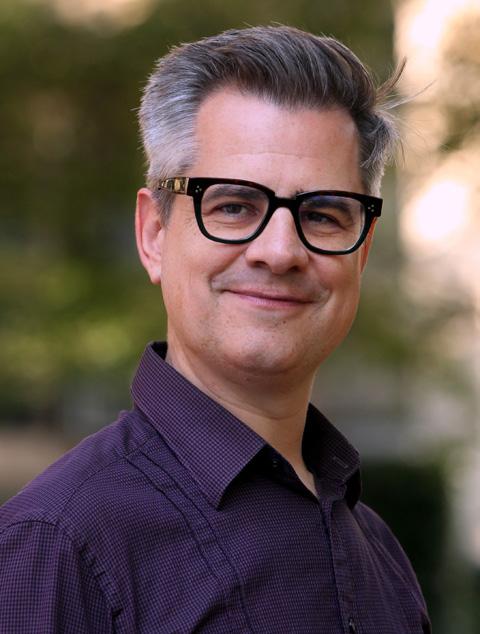
and conversations with Princeton faculty and visiting scholars. These include “Zhu Xi on Self-Focused vs. OtherFocused Empathy,” which reconstructs a long-lost debate about different sorts of empathy in Neo-Confucian philosophy, and “Shared Ends,” which compares Kant with the Confucian philosopher Dai Zhen (1724-1777) on the special ethical value of relationships based on shared ends. In addition to these four publications under cover, I also finished and polished drafts of two papers on autonomy and moral deference, both of which were shaped very substantially by feedback that I received from presentations given at Princeton. These are “Confucian Arguments for and against Pervasive Moral Deference,” which I presented at the Human Values Forum and the Princeton Workshop in Normative Philosophy (October and December 2019), and “Moral Deference and ‘Getting It Oneself’ in Confucian Thought,” which was substantially rewritten after receiving excellent comments at a meeting of UCHV’s Monday colloquium (February 2020). While at Princeton, I attended numerous talks and workshops sponsored by the UCHV, Philosophy, Politics, and East Asian Studies, and exchanged work with colleagues in all four programs. I also had a busy speaking schedule, which included a presentation on Kant and East Asian ethics at the Sungkyun Institute for Confucian Studies and East Asian Philosophy, a talk at the Columbia Comparative Philosophy Seminar, a presentation on Confucianism and human rights at Wesleyan University, and the annual Richard Holstein Lecture in Ethics at Washington College. I also sat in on Harvey Lederman’s splendid seminar on Neo-Confucian philosophy and participated in groups devoted to reading philosophical texts written in classical and literary Chinese. I am grateful for the time that I was able to spend on these many projects and for the new connections forged with the help of the UCHV.
Daniel Viehoff
The year I spent at the UCHV, though cut short by the COVID crisis, was enormously enriching and memorable. During my visit, I worked on several papers related to a book project on democracy, authority, and legitimacy. One of these papers, on the special privileges of public officials and how they depend on the quite demanding conditions under which officials can be said to “act for” the citizens, I presented at the UCHV Daniel Viehoff

seminar. I learned much from the ensuing discussion, just as I did from the probing questions that were raised when I presented the paper’s core ideas at the Human Values Forum. I had planned to present another paper, on the requirement of equal concern that applies to public officials, at the Princeton Workshop in Normative Philosophy in the spring; but that event was canceled, as were a number of other workshops in which I had agreed to participate. Perhaps the most intellectually rewarding parts of my visit were the many conversations I had with other fellows and the Center faculty. The campus closure in the spring made such personal interactions difficult; and once public schools were closed, childcare responsibilities began to take up much of my day, leaving little time for research. So the spring was rather less productive than the fall. Still, I benefited greatly from my time at the Center, and I am very grateful to Melissa, the Center staff, and the Center faculty for making the UCHV such a welcoming place.
The Harold T. Shapiro Postdoctoral Fellowship in Bioethics supports outstanding scholars studying ethical issues arising from developments in medicine or the biological sciences.
Michael Rabenberg
This year, my second at the UCHV, I completed and sent to journals several papers on a variety of topics in ethics, one of which, “Lucretian Puzzles,” was recently accepted at Ergo; gave talks at the University of Porto, the University of Warwick, and Princeton University on the ethics of prenatal injury, the morality of rescue, and the badness of death; and taught an undergraduate course on ethical issues concerning death. Obviously our sudden transition to remote work and the circumstances that occasioned it cast a shadow over my memory of the last several months of the academic year. But Melissa Lane’s leadership, the dedication of the UCHV staff, and the camaraderie of everyone at the UCHV made that transition far smoother than it easily could have been.
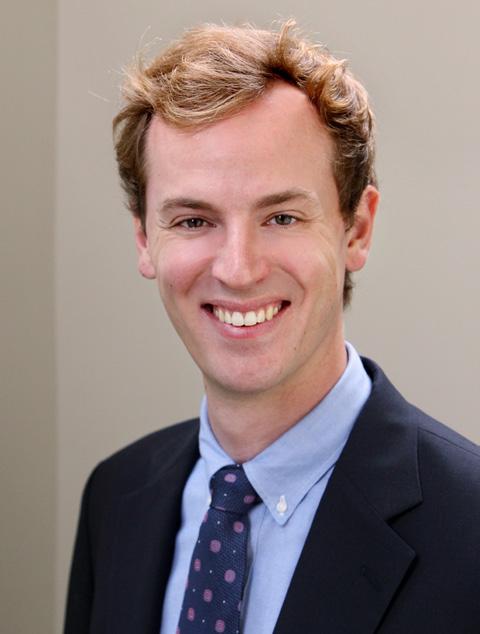
The Values and Public Policy Postdoctoral Fellowship is a joint endeavor of the UCHV and the Princeton School of Public and International Affairs and supports highly promising scholars trained in moral and political philosophy, political theory, normative economics, and related areas to develop a research agenda in the ethical dimensions of public policy.
Ashley Gorham
My first year as a Postdoctoral Research Associate in Values and Public Policy has been immensely productive. I am grateful for the opportunities for academic growth the Center has afforded me, and for the extremely generous support it has extended during this time of uncertainty. This year I did a private reading with my advisor Professor Steve Macedo on the theme of “glory,” which substantially improved my article “Anonymous’s Glory,” which was finally published in the International Journal of Communication. I presented an earlier version of the project to the UCHV community in February. I also presented an ongoing co-authored project on social media and privacy to the Center for Information Technology Policy (CITP) that same month. At CITP, I am currently working with Mihir Kshirsagar on his internet policy clinic. Also this year, I submitted for review my book manuscript “Hacktivism: Democracy on the Internet” to Princeton University Press. A highlight of the past year for me was advising students for the Values and Public Life Senior Thesis Workshop. Finally, this spring, a co-authored article titled “Algorithmic Interpellation” was accepted for publication at Constellations, and I began work on a Knight Foundation Project on information and transparency with Professor Ellen P. Goodman
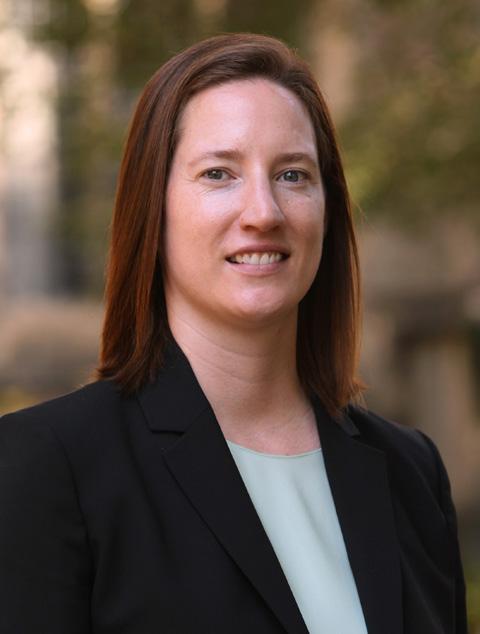
at Rutgers Law School.
August Gorman
My first year at the UCHV was incredibly stimulating. Princeton
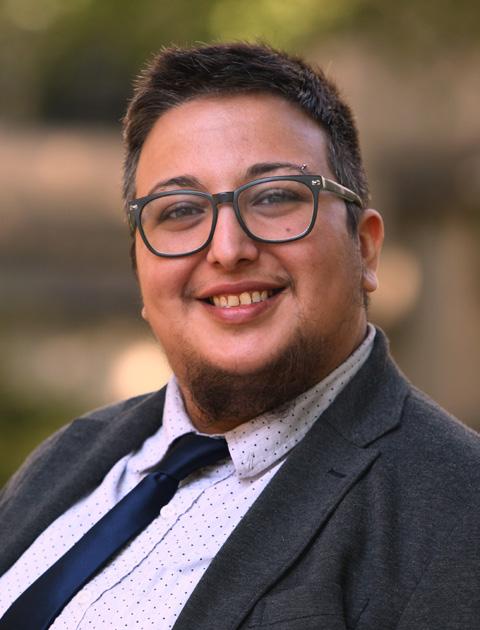
proved to be an especially fruitful place to conduct my interdisciplinary research project that explores how a person’s lifetime well-being is affected by her attitude toward her mortality. In a talk I gave at the Eastern APA, I used this research to argue for the importance of promoting suicide reduction policies that go beyond deglorifying suicide. My article “Depression’s Threat to Self-Governance” was published in Social Theory and Practice and a chapter on the risks of radically extending one’s lifespan is forthcoming in Exploring the Philosophy of Death and Dying (Routledge, 2020). I also started working on a book project that explores the effect of destigmatizing psychological variation on the theory and practice of moral responsibility. I gave talks on duties to manage compulsions, ADHD and responsibility for online distraction, and the ethics of blaming in cases of trauma-motivated action, each of which I intend to turn into a chapter of the manuscript. Other highlights of the year included starting a working group on marginal agency with Tori McGeer, attending Liz Harman’s moral ignorance seminar, teaching a section of the Values and Public Life senior seminar, and getting a graduate-level course approved for next year on the ethics of mental health policy. This year I had the privilege of co-teaching the multidisciplinary course “The Environmental Nexus,” a keystone course in the Princeton Environmental Institute. I introduced the students to distributive questions in evaluation of climate policy and the importance of future generations. The students enjoyed it very much, and invited me to present at several student events, including a meeting of the Office of Religious Life, the Princeton University Energy Association’s Lunch Seminar, and a panel on climate change and the coronavirus organized by the Princeton Student Climate Initiative. Other highlights were having a piece (“Public Values in the Right Context”) accepted for the Australasian Philosophical Review and co-authoring my first column with Peter Singer (“Put a Price on Carbon Now!”). We argue that the COVID-19 crisis is a better time than normal to introduce a carbon price. More emotional was hosting a farewell event for my supervisor, Marc Fleurbaey, as well as the recognition that I, too, will be leaving the Center for University College Cork in the coming year. Many thanks to Melissa Lane and to all my colleagues at the Center who made it such an outstanding place to work over the past

Kian Mintz-Woo
two years.
Annette Zimmerman
I thoroughly enjoyed my second year with the UCHV’s inspiring community of scholars. During the 2019-20 academic year, I continued my postdoctoral research project on the ethics and politics of algorithmic decision-making and machine learning, with a particular focus on AI in criminal justice and law enforcement. I am grateful for the UCHV’s continuing support for interdisciplinary research in this important field of philosophical interest, as well as the support for my research workshop on the “Ethics of Algorithmic Decision-Making in Democratic Institutions” (November 2019). Aside from teaching a seminar on AI ethics for Ph.D. students, doing collaborative research with colleagues in computer science, and providing expert commentary on several legislative and
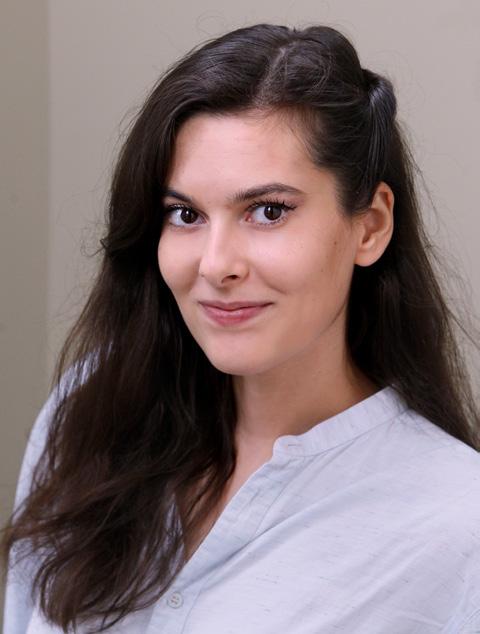
regulatory proposals related to AI, I published an article (“Criminal Disenfranchisement and the Concept of Political Wrongdoing”) in Philosophy & Public Affairs, and an essay (“Technology Can’t Fix Algorithmic Injustice”) in the Boston Review. I will look back fondly at my intellectually rewarding time at the UCHV, and I look forward to continuing my research on the ethics and politics of AI next year as a permanent faculty member at the University of York’s philosophy department, and as a Technology and Human Rights Fellow at Harvard University.
The Ethics and Climate Change Postdoctoral Fellowship supports scholars focusing on the ethical dimensions of climate change, informed by knowledge of climate science and policy. The fellowship is a joint endeavor with the Princeton Environmental Institute.
Ewan Kingston
My first year as the Climate Futures Initiative postdoc has allowed me to cultivate familiar ground and explore new territory. In several articles (forthcoming and under review), I have developed a positive account of consumption ethics: consumers should relinquish the benefits they gain from “unruly markets,” such as the market in fossil fuels. With colleagues at PEI, I am developing a policy-focused paper that assesses Ewan Kingston
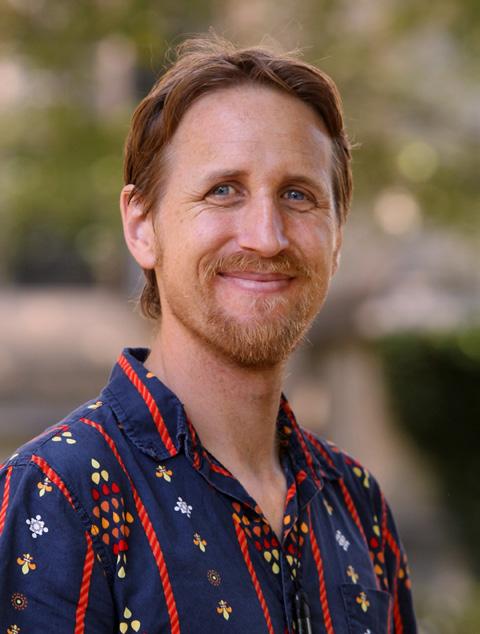
the strategic background for environmental accreditation of firms, and the need for an authoritative civil society review of countries’ climate change commitments. I am currently organizing a workshop on the intergenerational and transnational aspects of climate policy. I was pleased to be able to serve Princeton undergraduates as a preceptor in the interdisciplinary “The Environmental Nexus” course and as a workshop instructor for the Values in Public Life Program. Finally, I have been developing an ethical criteria for appropriate antiprice-gouging policies under the crisis conditions of the novel coronavirus pandemic.
The Cognitive Science of Values Postdoctoral Fellowship supports promising scholars with a background in cognitive science or a related discipline whose research focuses on understanding social and/or moral cognition and its implications for normative theories.
Sara Aronowitz
This year, I’ve worked on a few different projects in the lab, including one on narrative explanation (with Casey Lewry and Tania Lombrozo) and another on the way knowing the moral of the story affects literary experience (with Kerem Oktar, Aarthy Vaidyanathan, and Tania Lombrozo). I’ve finished up a paper with Amir Saemi and Marilie Coetsee about religious obligations such as the requirement to pray a certain number of times a day, or fast for a certain number of hours: these quantitative requirements might seem arbitrary in a bad way and a lot of effort has gone into trying to come up with a precise reason the requirement had to be exactly what it is. This betrays a kind of fear of arbitrariness — but we argue that arbitrariness is less problematic but also much more complicated than it appears.
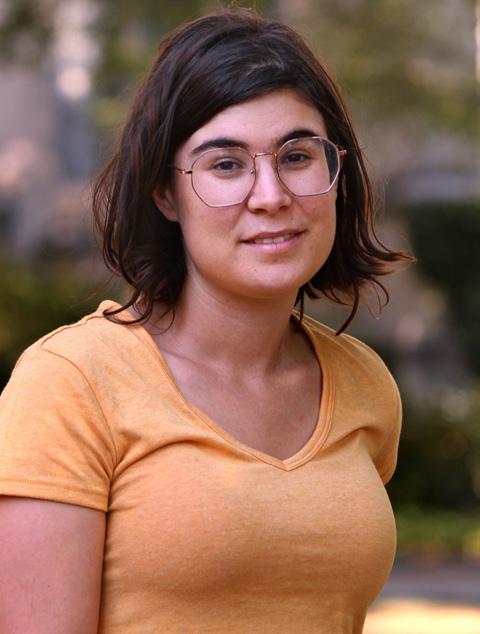
Corey Cusimano
I spent my first year at the UCHV breaking ground on a new research program to understand how ordinary people decide what makes
Corey Cusimano a belief justified or good. The UCHV turned out to be the perfect environment to do this, as I regularly benefited from the expertise of Renée Bolinger, Andrew Chignell, and members of the Concepts and Cognition Llab. I presented new research on this topic twice at the UCHV, including once at the excellent “Empirical Moral Psychology in the Philosophy Curriculum” workshop organized by Stephen Stich. The feedback I received from the community was extremely valuable and led to me drafting two papers with Tania Lombrozo, “Morality justifies motivated reasoning” and “Five ways to think about your biased, superstitious, and non-scientific belief.” I also learned a great deal from the many classes and events hosted by the UCHV. In the fall, I audited an ethics graduate seminar taught by Liz Harman. And finally, I particularly enjoyed attending seminars hosted by the UCHV, which exposed me to a wide variety of new topics. Among my personal favorites were a talk by Renée Bolinger on the #BelieveWomen movement and a talk by Ryan Darr on the (surprising) intellectual roots of

utilitarianism.
The postdoctoral position in the Princeton Project in Philosophy and Religion (PPPR) supports highly promising scholars who are trained in philosophy of religion, the religious thought of some historical period or culture, theories and methods in the study of religion, or related areas, in developing a research agenda in philosophy of religion broadly construed. The fellowship is a joint endeavor of the UCHV, the Department of Philosophy, and the Department of Religion.
Ryan Darr
I am so grateful to have spent this last year as a member of the UCHV community. The year was both enriching and productive. I published three articles, two of which appeared in the Journal of Religious Ethics and one in the Journal of the Society of Christian Ethics. I also made progress on the large task of rewriting my dissertation — a new history of the origins of utilitarianism that focuses on its emergence from theological debates and religious concerns — for publication as a book. In addition to research, I participated in many activities and events. I designed and taught a new course in the religion department called “Religion and Ethics in the Anthropocene,” which was a very rewarding experience. I was a regular participant in and contributor to the Religion and Critical Thought Workshop. I was also an organizer of a weekly philosophy of religion reading group as part of the new Princeton Project in Philosophy and Religion (PPPR). It has been especially fun to see a growing community gather around PPPR this year. I am excited about the future of the project.
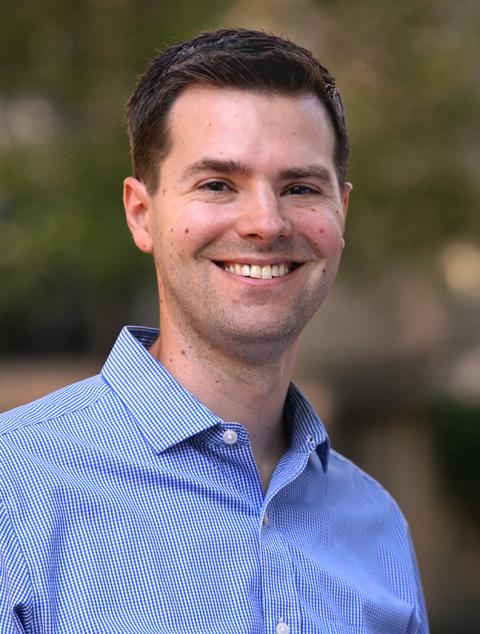
Daniel Rubio
I enjoyed an interesting and stimulating first year at the UCHV. My primary work this year has been in axiology. I published one paper arguing
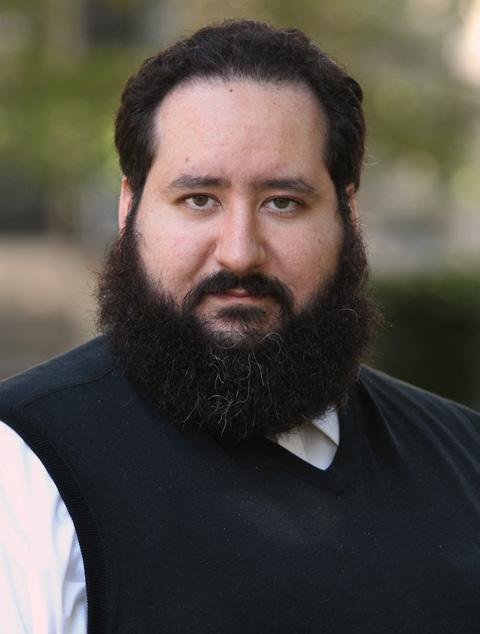
that some recent attempts to revive the Leibnizian thesis that there is a best of all possible worlds fail and in the process developed a novel way of comparing worlds that contain infinities. I completed two other papers, one defending the view that death is not a serious harm for the one who dies and another, co-authored with Eddy Chen, arguing that the problem of evil does not become worse if Everett’s interpretation of quantum mechanics is correct. I am currently writing two further papers, one defending the view that ordinary things can have intrinsic value from recent objections and another exploring a conflict between a principle of substantive rationality that says we should value things in proportion to their objective goodness and a principle of procedural rationality known as the countable sure thing principle. In addition, I facilitated a reading group on Robert Adams’ forthcoming metaphysics book and co-taught a course on religion and reason with Andrew Chignell.
Laurance S. Rockefeller Graduate Prize Fellows
These fellowships, made possible by a gift from Laurance S. Rockefeller ’32, are awarded to Princeton graduate students with distinguished academic records who show great promise of contributing to scholarship and teaching about ethics and human values. Fellows participate in an interdisciplinary research seminar throughout the year. In 2019 to 2020, the seminar was convened by Elizabeth Harman, Laurance S. Rockefeller Professor of Philosophy and the University Center for Human Values and Director of Early-Career Research at the UCHV.
Olaoluwatoni Alimi
My experience in the UCHV, especially as a Graduate Prize Fellow, has been rewarding. Thanks to funding from the Political Philosophy Research and Travel Grant, I was able to attend a major conference at Oxford and meet and discuss my dissertation with a professor at Cambridge. This year I have made significant progress on my dissertation, “Slaves of God,” which explains Augustine’s account of slavery and argues that understanding it provides clarity on Augustine’s conceptions of law, citizenship, and religion. I was also able to present versions of three chapters at various conferences, colloquia, and workshops over the course of this year, and had my first peer-reviewed article accepted for publication. Furthermore, I have benefited from the opportunity to attend various talks and conferences that the UCHV put on or sponsored. I am grateful to the Center’s staff, who organized our GPF meetings and provided invaluable help in the surprise midsemester switch to conducting all our activities online. As the seminar leader, Liz Harman provided excellent and actionable guidance with respect to matters of presentation and professional development. My fellow GPFs proved wonderful colleagues; their feedback on my work was crucial, and the chance to learn from theirs was exciting.
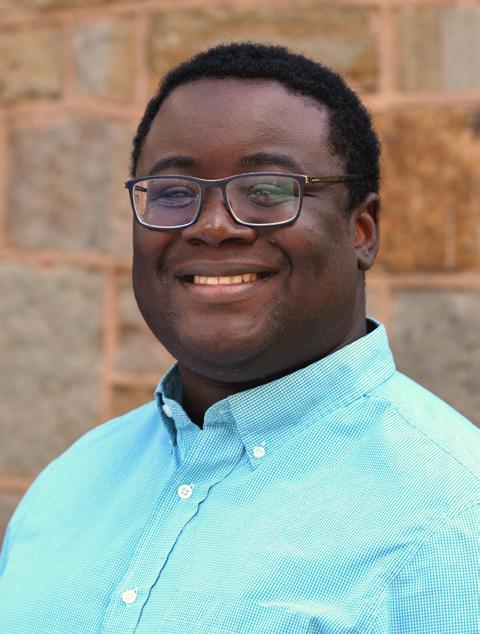
Alisabeth Ayars
I had a wonderful year at the UCHV. Throughout the year, I worked on a number of projects. I presented my paper, “Contractualism and the Scope of Morality” in the Graduate Prize Fellow seminar and received excellent feedback. I also finished up my paper “Blaming for Unreasonableness,” which was accepted to the Journal of Ethics and Social
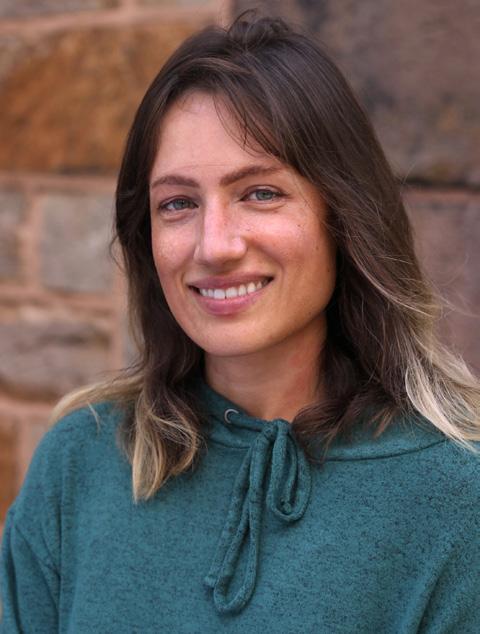
Philosophy for publication in January. Finally, I worked out the core idea of my dissertation, culminating in a paper titled “Deciding for Others.” I found my time in the UCHV to be extremely valuable in terms of improving my productivity and allowing me the space to work out ideas. At the start of the year, I had only the faintest idea of what my dissertation would be about. Now, I have a fully worked out idea, and a nearly finished paper developing the idea. I doubt this would have been possible without the year of intense research focus my year at the UCHV made possible.
Chiara Benetollo
As a Graduate Prize Fellow I was able to make significant progress toward the completion of my dissertation, tentatively titled “Languages of Pronatalism: Literature, Politics, and Public Health in the Soviet Union and Italy.” In this work, I explore the relationship between Soviet, Italian Communist, and Catholic representations of childbirth and maternity: complicating traditional Cold War narratives and rejecting the polar opposition between the Western and Soviet blocs, I investigate how the Soviet government, the Italian Communist Party, and the Catholic Church struggled to define their position in relation to and in contrast with one another, while fundamentally sharing the single core value of pronatalism. I greatly benefited from participating in the GPF seminar led by Liz Harman, as being exposed to different approaches to the study of human values has helped me explore the contribution of my research to the investigation of broader historical and ethical questions. Beyond supporting my dissertation research, the UCHV has been a source of comfort and continuous enrichment: I am grateful for the opportunity to regularly participate in stimulating conversations and to feel part of an intellectually rich, diverse, and supportive community, especially during the COVID-19 pandemic.
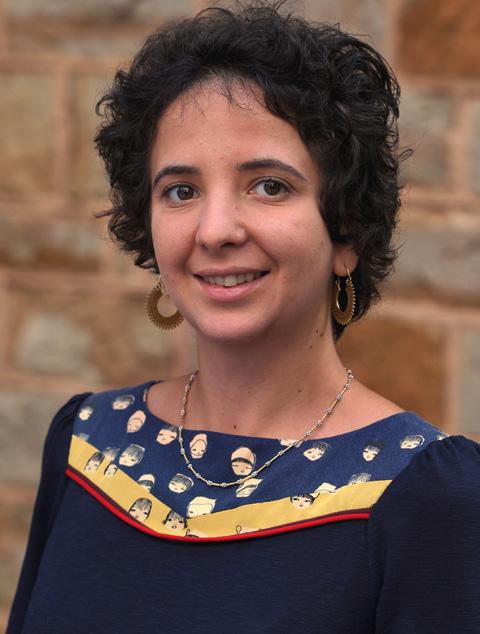
Benjamin Bernard
My Graduate Prize Fellow cohort showed me the best that interdisciplinary conversations can offer: to offer new ways of thinking rather than to talk past each other. They helped me identify how my project — a history of moral authority in education and administration in early modern France — can speak to philosophers, as well as how my work can incorporate the philosophy of religion and political thought. The UCHV fellowship provided the opportunity for me to revise the structure of my dissertation and to draft two chapters, both about the early modern college: one interpreting such schools as an influential institution of Enlightenment moral sociability, and one drawing attention to its role in the genesis of modern vice policing. I presented a mock job talk of my materials to the GPF seminar; it was fortunate I did, because this was soon followed by an actual job talk, for which our seminar’s professional development aspects proved indispensable. When COVID-19 interrupted our in-person meetings, our resilient community helped me to continue my work. I’m grateful for the generative exchanges with other UCHV affiliates, postdocs (Ryan Darr), and faculty (Nan Keohane); I especially thank Kim Girman, Kim Murray, and our brilliant guide Liz Harman.

Stephanie Fan
With great gratitude to the UCHV, my year as a Graduate Prize Fellow has been incredibly productive and rewarding. The GPF seminar provided me with the opportunities to present my research project to the graduate fellows with multidisciplinary backgrounds. I have
also learned from their insightful comments and sophisticated research projects. The external speakers invited in our professional development sessions shared penetrating insights on teaching and the job market, and I enjoyed the community of the graduate fellows that we built under the guidance of Liz Harman. Under the tough circumstances of COVID-19, the UCHV constituted a cohesive and supportive community and helped me to reflect on this crisis from the perspective of political science, moral philosophy, and law. I have written two chapters of my dissertation and the related papers have been accepted by a journal: “Redeemed from Skepticism”— Nietzsche’s revaluation of ancient Skeptics’ truth investigation (zētein) and philosophy of life (ataraxia)” will appear in Comparative and Continental Philosophy and an encyclopedia entry on La Rochefoucauld for The Literary Encyclopedia has been published. Another paper on Augustine and the Speech Acts was accepted by Studia Patristica. I have also presented my papers at Oxford, the University of London, and the Society for Interdisciplinary French Seventeenth-Century Studies. I organized one reading group on the reception of Seneca and other events, which are postponed to next year. I also appreciated the UCHV workshops on COVID19, Thomas Paine and the French Revolution, and other conferences.
Robin Gomila
My year as a Graduate Prize Fellow has been incredibly helpful for my academic development. The UCHV has allowed me to devote a significant amount of time and energy to my research. Thanks to the Graduate Prize Fellowship, I was able to complete my dissertation work on the antecedents and consequences of deviance, and broaden my research horizons by developing new projects on social influence or writing about psychological methods. I am now ready to graduate and start my first academic appointment as a lecturer in statistical methods in the Department of Psychology at Princeton. I am grateful for spending a year surrounded with a group of brilliant, openminded, and dynamic scholars from diverse disciplines. I loved being exposed to a broad range of ideas, receiving invaluable career advice, and discussing fascinating research topics with Liz Harman and the other fellows. Finally, I appreciated the chance to develop the necessary skills to discuss my research with multidisciplinary audiences. For all of this, I am extremely grateful and would like to warmly thank the UCHV for this opportunity.
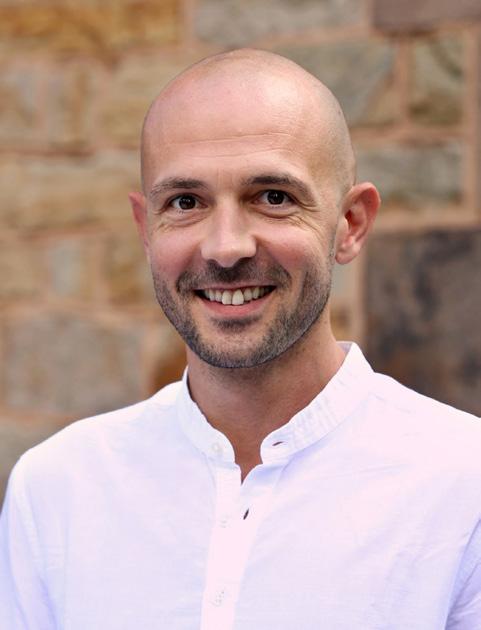
Emily Silkaitis
Being a Graduate Prize Fellow this past year has enabled me to think about my research in new and exciting ways, while introducing me to a cohort of very bright, motivated individuals whose friendship I will continue to treasure. Through participation in the GPF seminars, I was introduced to scholarship in other fields that I had always seen as somewhat separate from my own research, which is on suicide in early Islam, but which I have discovered connects and intersects in ways that have been extremely thought provoking and formative as I continue to think about this dissertation topic. In addition to the graduate forum, I also attended some LSR and postdoc seminars, and mentored an undergraduate in the Program in Values and Public Life, all of which contributed to a rewarding and intellectually stimulating year at the UCHV. During this time, I researched and wrote the second chapter
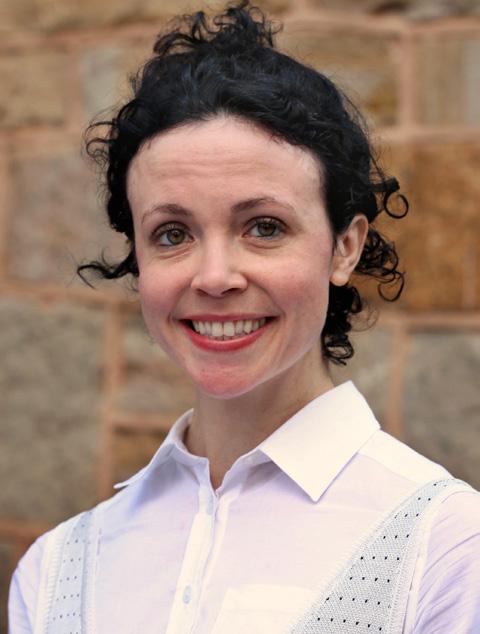
of my dissertation, “Tribal Ethics, Communal Identity, and Suicide in Arabic Love Stories.” I presented an earlier draft at a workshop in the Center for the Study of Religion, where I am also a fellowship recipient. I received valuable feedback when I presented this research at a GPF seminar. Afterward, I kept returning to this one comment in my mind, from a graduate fellow in psychology, and now, come the end of the year, I have rewritten this entire chapter with a new interpretive framework, grounded in cultural psychology. It is both the strangest and most cutting-edge thing I have ever written, and I cannot wait to see how else my time at the UCHV and the insights gained here will continue to dictate and remold the shape of my dissertation.
Aarthy Vaidyanathan
In the 2019-20 academic year, I worked on developing two ideas that are central to my dissertation on the role of anger in our lives: 1) Anger has value as a manifestation of a distinctive kind of intimacy; 2) Anger that includes the desire for payback can sometimes be worthy of admiration. In developing these ideas, I benefited immensely from the feedback of my cohort of Graduate Prize Fellows as well as Liz Harman. I presented a part of the second idea at the seminar for GPFs in the spring of 2020. More generally, I also gained a better understanding of the work of scholars in different branches of the humanities. I really appreciated the window into the ongoing work of my cohort at the GPF seminar as well as the opportunity to attend the talks of the LSR fellows and conversations with members of the UCHV community more broadly. Finally, I am deeply grateful for the support of the UCHV community during the ongoing COVID-19 pandemic.
Andrew Walker-Cornetta
The UCHV provided me with indispensable intellectual community during my final year at Princeton. The opportunity to share research from my dissertation, “Spiritual Rehabilitation: Religion and Cognitive Disability in Postwar America,” with my Graduate Prize Fellow colleagues proved most fortuitous as I prepared for the job market this winter. Learning with and from peers from diverse disciplinary backgrounds has helped me to both hone my project’s arguments and to broaden my ken. In addition to enabling me to complete my dissertation, the Center’s support also made it possible for me to present research this year at the annual meetings of the American Academy of Religion and the American Catholic Historical Association. As I move beyond Princeton, I will have to hold out hope that I might find such a nurturing academic environ-
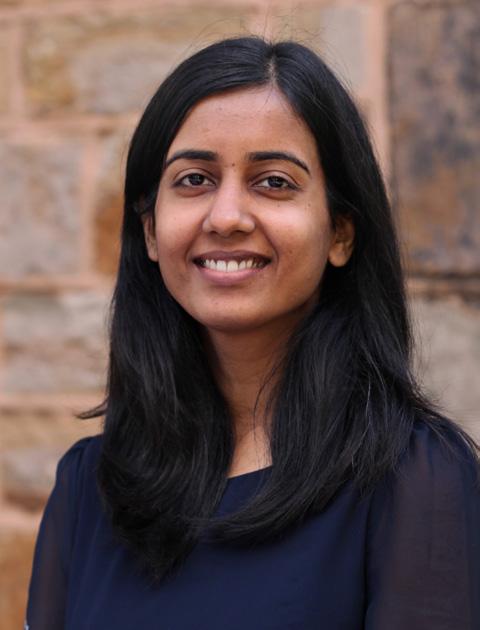
ment elsewhere.
Niharika Yadav
I am very grateful to the UCHV for giving me the opportunity to dedicate an entire year to writing my dissertation, titled “Languages of Socialism in Postcolonial India (c. 19401965),” which follows the career of “democratic socialism” within postcolonial India’s closely intersecting literary and political realms. I was able to use this time to complete drafts of two chapters of my dissertation: the first chapter
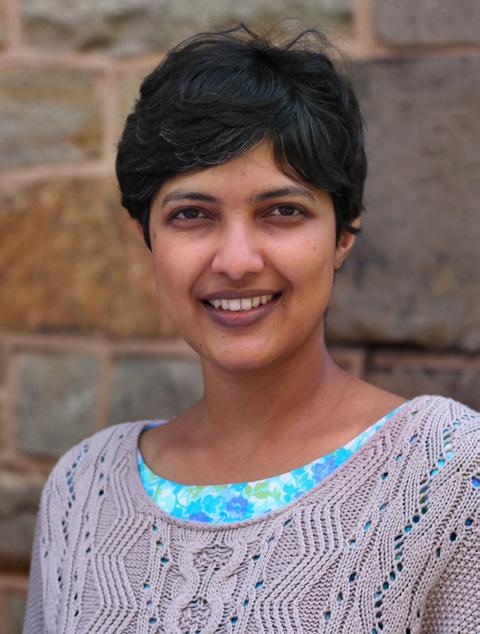
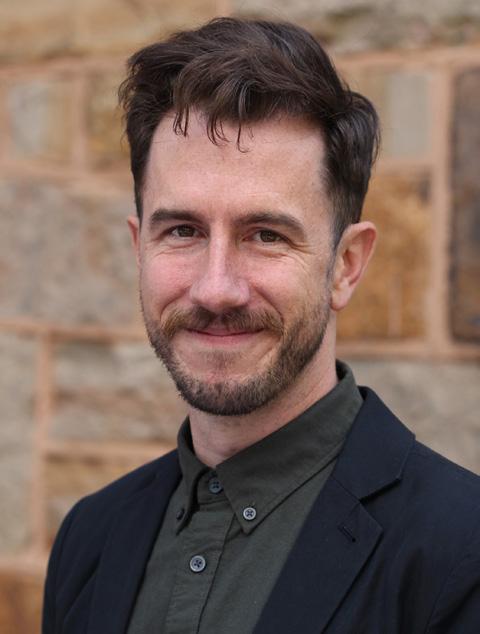
traces efforts made by Hindi socialist writers to develop a new literary and popular language in the context of debates over Hindi’s history and its future within the new nation; the second chapter examines how the prominent socialist Ram Manohar Lohia and his breakaway Socialist Party mobilized these literary efforts to reimagine Hindi within new modes of civil resistance in a bid to usher “revolutionary socialism” in postcolonial India. I presented critical arguments from both chapters at the Graduate Prize Fellow research seminar and received invaluable feedback from faculty members and fellows. In addition, I was able to use the GPF travel grant for archival research at the University of Chicago Library’s Special Collections Research Center and to attend the Annual Conference on South Asia in Madison, Wisconsin. Above all, I have cherished the community fostered through lively interdisciplinary intellectual exchanges over the course of the year. This community not only sustained me through the otherwise lonely process of dissertation writing, but also became an unbelievably important source of support in the spring, as we all found ourselves confronting a global pandemic. Our (virtual) sessions provided the continuity and sociability I needed to get through each week. I feel inspired by the generosity of all the faculty, fellows, and staff at the UCHV whose impeccable commitment to human values I experienced firsthand, in the form of critical material support and regular thoughtful correspondence throughout this crisis. I hope this year is the start of a long and sustained engagement with the intellectual life and ethical commitments of the UCHV community.
Faculty Research Grants
The Center sponsors a program of competitive grants for Princeton faculty members to support individual and collaborative research projects on subjects relating to values in public and private life. In the 2019-20 academic year, the following grants were awarded as part of this program:
“Politicians’ Moral Character” Carles Boix, Politics and Princeton School of Public and International Affairs and Amaney Jamal, Politics Individual research travel for a book on Wittgenstein and the problem of fragility Gabriel Citron, Religion
Bilingual translation and commentary workshop on Albertus Magnus’ De natura loci Hendrik Lorenz, Philosophy
“The Demobilizing Effects of Pretrial Incarceration” Tali Mendelberg, Politics
“Street Police Patrols and Violence Against Women in Public Spaces: Experimental Evidence from India” Maria Micaela Sviatschi, Economics
“Healthy Democracy, Healthy Citizens? Testing the Health and Turnout Effects of Anti-Immigrant Policy and Campaign Rhetoric among Latinos and Whites” Ali Valenzuela and Omar Wasow, Politics





